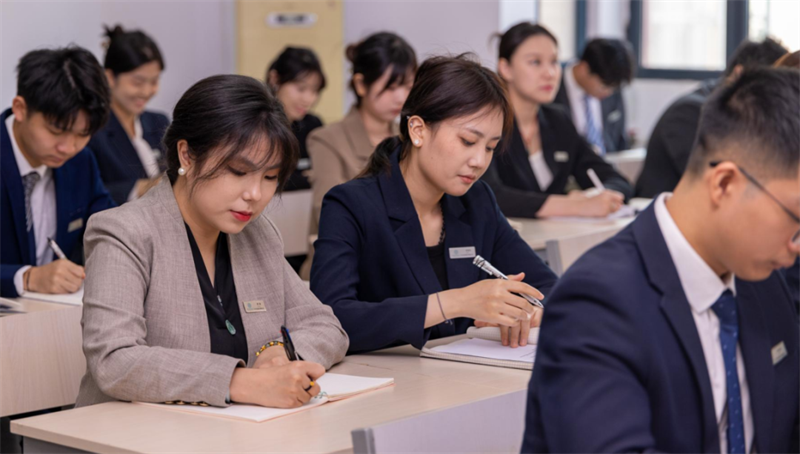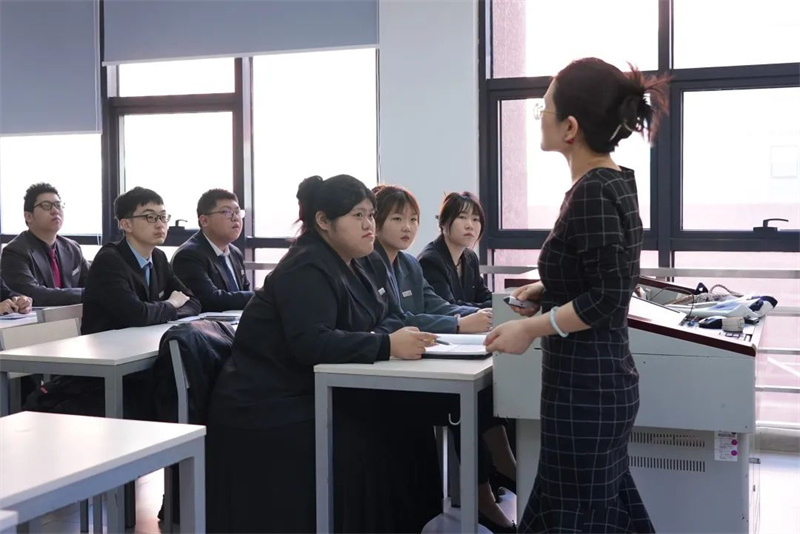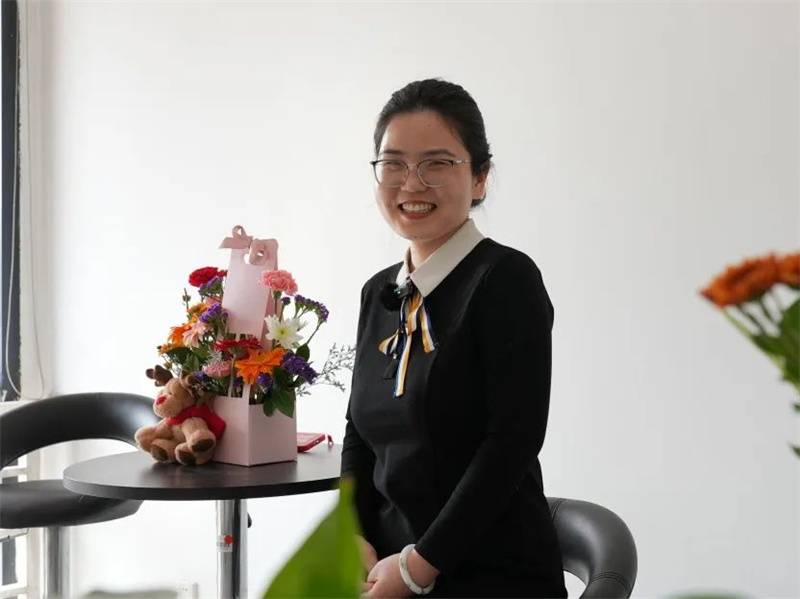High Quality Course in BHI | Cross Cultural Communication Course Received High Praise From Students
On the campus of Beijing Hospitality Institute, there is a teacher who is highly loved by students, Mao Tian, a teacher in the Foreign Language Office. She opened a window to the world of cross-cultural communication for students with perseverance and passion. As the instructor of Cross Cultural Communication (Advanced English), Mrs Mao always puts her heart into every class. Her classroom is a perfect encounter of knowledge and practice. She embodies the teaching philosophy of “integrating knowledge and practice, and apply knowledge into practice” throughout the entire process, with a high level of professional competence and distinctive teaching characteristics. In class, Mrs Mao greets the students in fluent English and asks them to put away their water bottles and phones, and focus fully on their studies. She encourages students to listen attentively, take active notes, and answer questions enthusiastically, and gives praise and bonus points to the students who answer questions. After class, she says thanks and bid farewell to the students in English, reminding them to return their seats to the proper positions and take away their garbage. Every detail demonstrates her dedication to professional ethics and teaching standards.

Teacher Mao Tian, from Foreign Language Office
Course Introduction

Course Overview
Cross cultural Communication is a public foundational course tailored for students majoring in hotel management, financial management, human resources, etc. It is based on courses such as Comprehensive English and Business English, and is committed to deepening students’ cross-cultural communication skills and broadening their international views. Through this course, students will be guided to examine issues from a global perspective, deepen their understanding of multiculturalism, enhance their sensitivity to cross-cultural communication, and thus achieve comprehensive improvement in humanistic attainment.
Course Objectives
This course sets clear three-dimensional objectives: knowledge objectives, ability objectives, and mindset objectives. In terms of knowledge objectives, the course aims to enable students to deeply understand the core concept of “cross-cultural communication”, master the essence of Chinese culture and the traditional customs of global multiculturalism. Through critical thinking and comparative analysis of Chinese and foreign cultures, students will enhance their sense of national pride and cultural confidence. The ability objectives mainly focuses on guiding students to build their worldview, strengthen their sense of identity with Chinese culture, master the differences in pronunciation, intonation, and syntax between Chinese and English, and flexibly apply communication skills in cross-cultural communication. The mindset objectives include cultivating students’ international views and cross-cultural mutual respect awareness, establishing an open and inclusive mindset, deeply understanding and respecting the traditions, cultures, and values of various countries, and laying a solid mindset foundation for becoming professional talents with international competitiveness.
Course Significance
Cross Cultural Communication is not only a language course, but also a comprehensive course aimed at cultivating students’ cross-cultural communication skills, international views, and humanistic quality. It lays a solid foundation for students to seize opportunities and respond to challenges in the context of globalization in the future, and has a profound impact on their long-term career development and the shaping of their cross-cultural adaptability.
Wonderful Class

Mrs. Mao always adheres to student-centered teaching, encouraging them to actively participate in discussions and share their experiences and insights in cross-cultural communication. She firmly believes that every student is unique, and their experiences and perspectives are valuable assets. Through group discussions, role-playing, and other activities, she encourages students to learn through interaction, grow through sharing, and experience the charm and challenges of cross-cultural communication.
In order to help students better understand the complexity and diversity of cross-cultural communication, Mrs. Mao constantly tries to introduce more elements of situational teaching and experiential learning. For example, by simulating business negotiations under different cultural backgrounds, students can learn how to adapt to different communication styles and maintain openness and inclusiveness in cross-cultural communication while solving problems. These situations not only exercise students’ cross-cultural communication skills, but also teach them how to find resonances in multiculturalism and establish effective cooperative relationships.
Teaching Perceptions

“Standing on the podium in BHI, it has been 12 years in the blink of an eye. Every encounter with students in the classroom is not only about imparting knowledge, but also about growing together through the collision of hearts and wisdom. I have always insisted on strengthening students’ subjectivity and encouraging them to actively participate in classroom discussions. I firmly believe that every student is unique, and their experiences and perspectives are valuable assets.”



